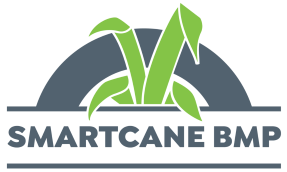YOUR FARM,
YOUR WAY
45%
of Queensland's cane land is
accredited in Smartcane BMP
Smartcane BMP celebrates the way you farm
Since 2014, Queensland canegrowers led the development of Smartcane BMP to record and verify their practice improvements. A state-wide network of dedicated district facilitators supports growers to collate farm records and gather the evidence required to achieve accreditation.
These efforts have set the record straight and secured Smartcane BMP accredited growers’ reputation as stewards of the land. Now one in four Queensland growers is accredited, and Smartcane BMP is the certification that underpins social license, sustainable cane and environmental stewardship.
Accreditation in three core modules is the gold standard for Smartcane BMP.
The three core modules are;
- Soil Health and Nutrients
- Irrigation and Drainage
- Weeds, Pests and Diseases
Three core modules are the gold standard
for Smartcane BMP
Accreditation Pathway
1. Registration
Yet to register? Click on the register button or contact your local Smartcane BMP Facilitator for support.
2. Self Assessment
Benchmark your on-farm practices against industry best practice.
Click on the "Register and Self Assess your Farm" button to complete the modules' self assessment or contact your local Smartcane BMP Facilitator.
The minimum requirement for accreditation is modules 1-3.
3. Pre-audit
Ready to move towards accreditation? Work with your Smartcane BMP facilitator to collate relevant documents and supporting evidence for a pre-audit check.
4. Audit
Your pre-audit demonstrates that you meet all industry standards, what's next? An on farm audit will be conducted by a third-party auditor. The auditor will assess your practices and evidence provided against the Smartcane BMP industry standards.
5. Accredited
Accreditation lasts for 5 years with a short annual review to ensure the database remains current. Accreditation is recognized as compliant with Reef regulations and sets the record straight that the sugar cane industry is a proactive industry.
Emissions Calculator
Gain insight into your farm’s greenhouse emissions and find new opportunities to
cut waste, improve efficiency, and reduce your footprint.
